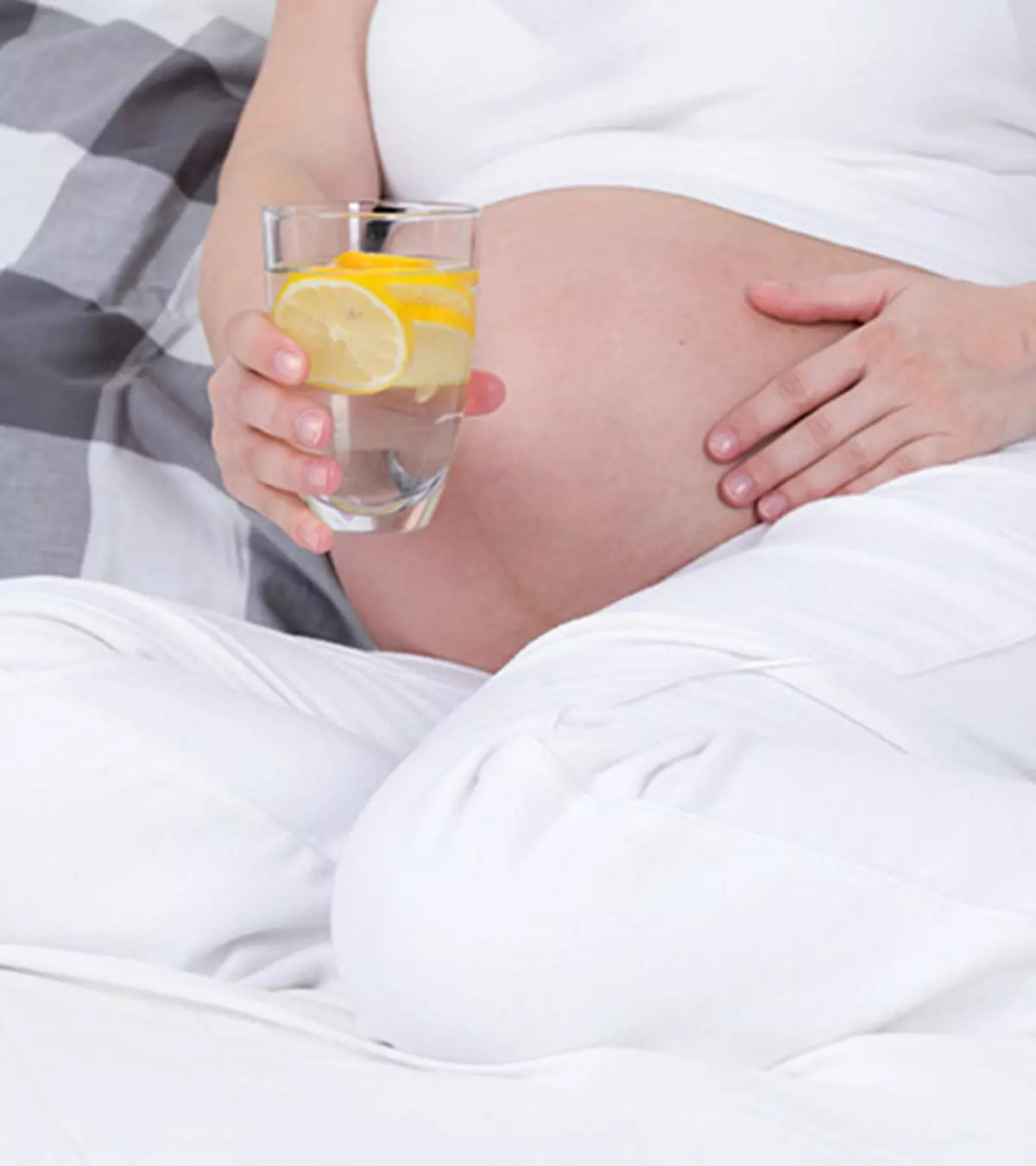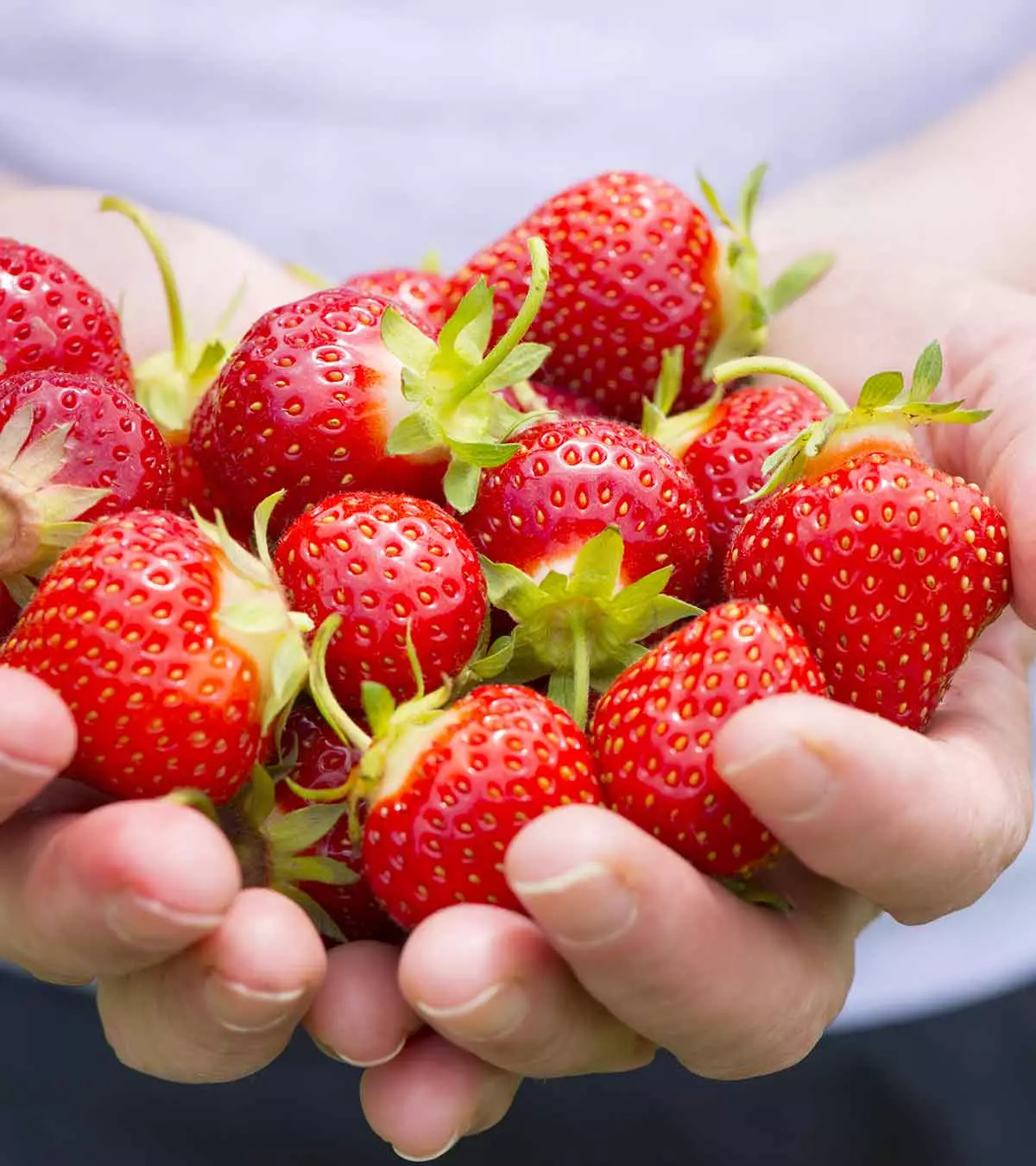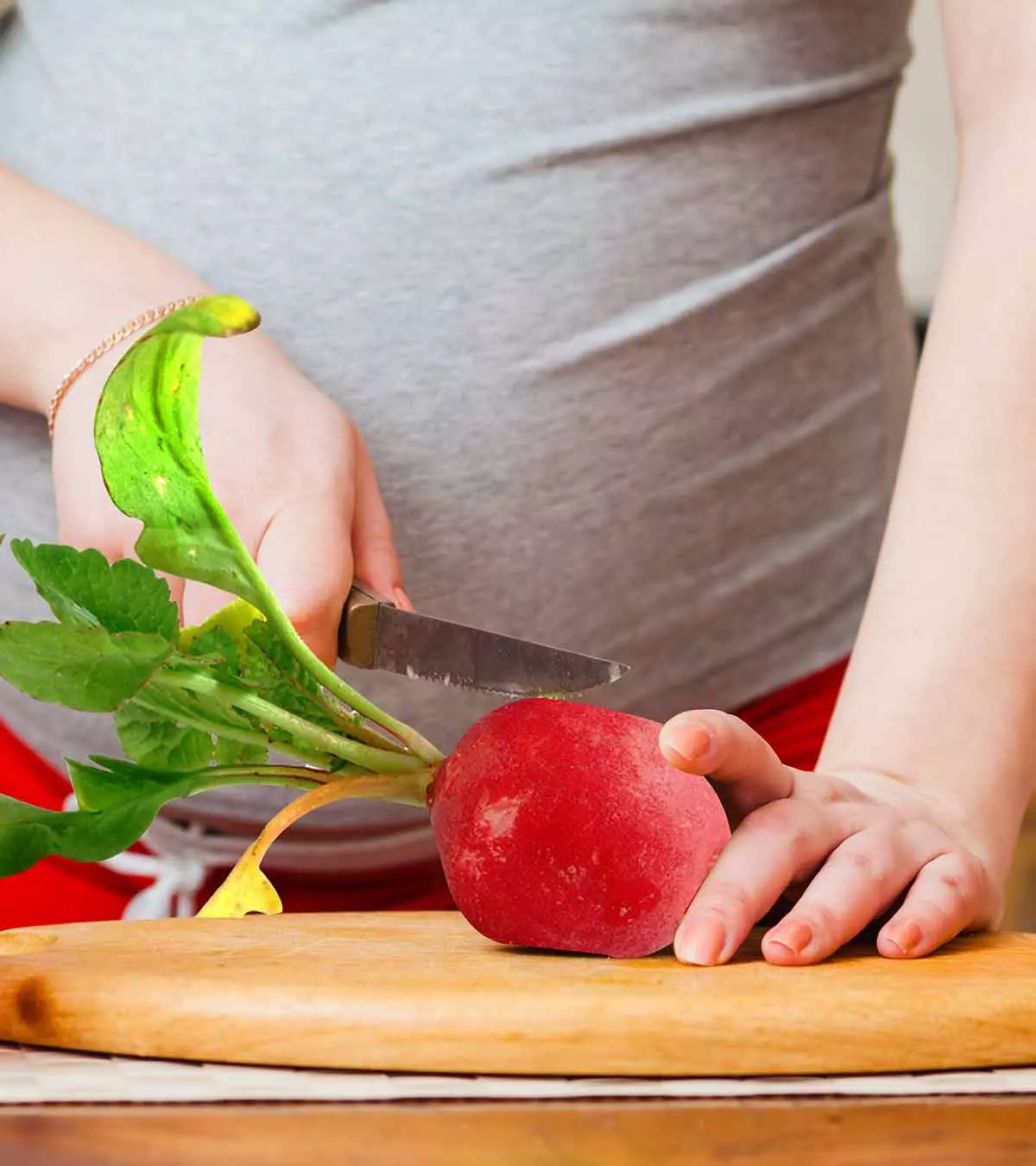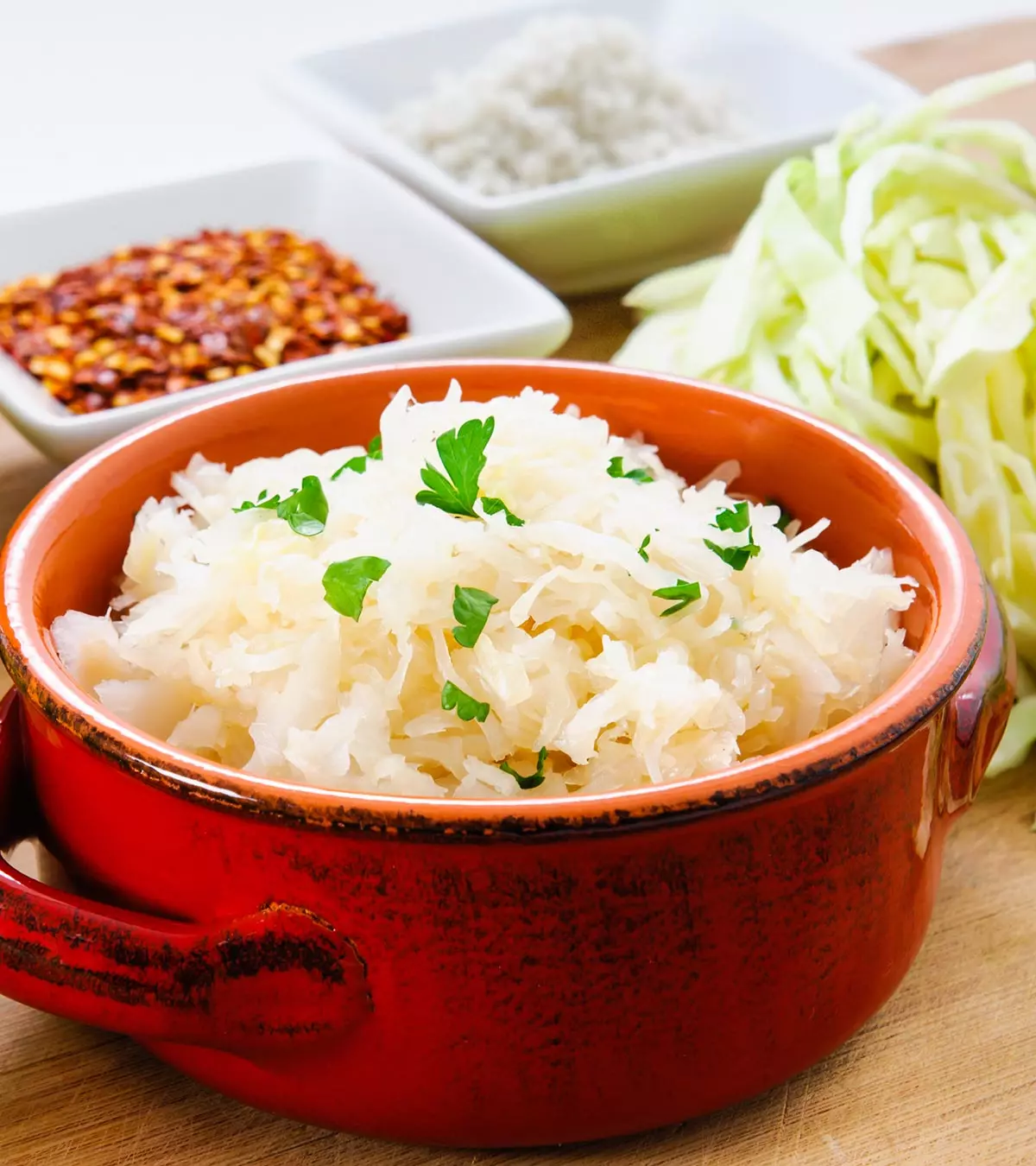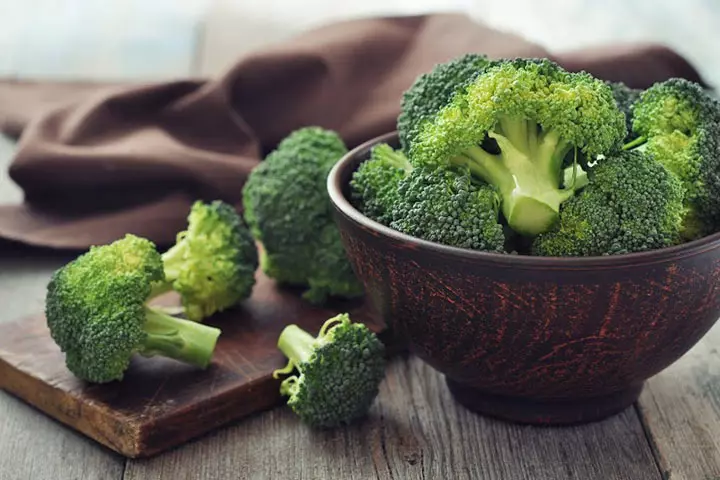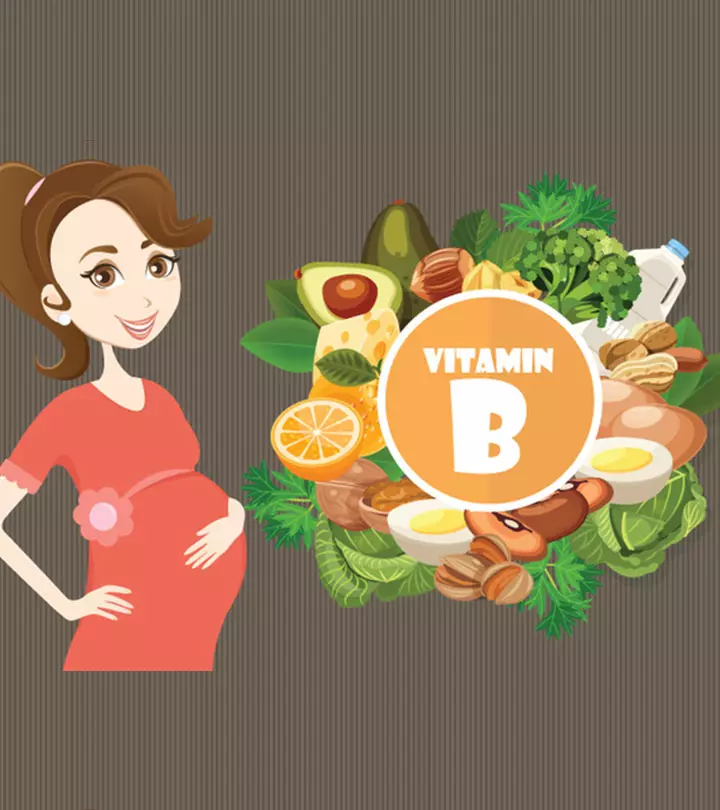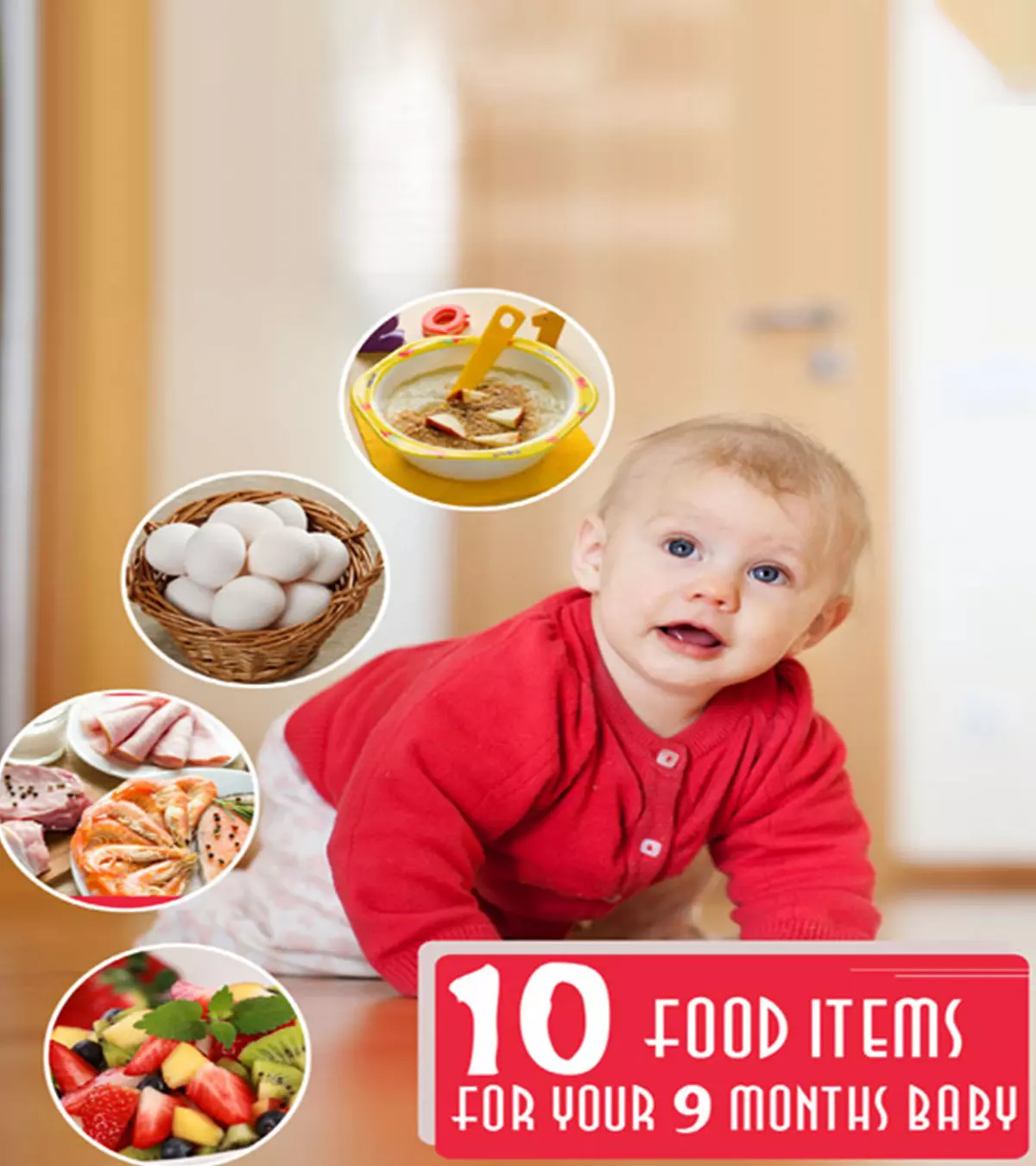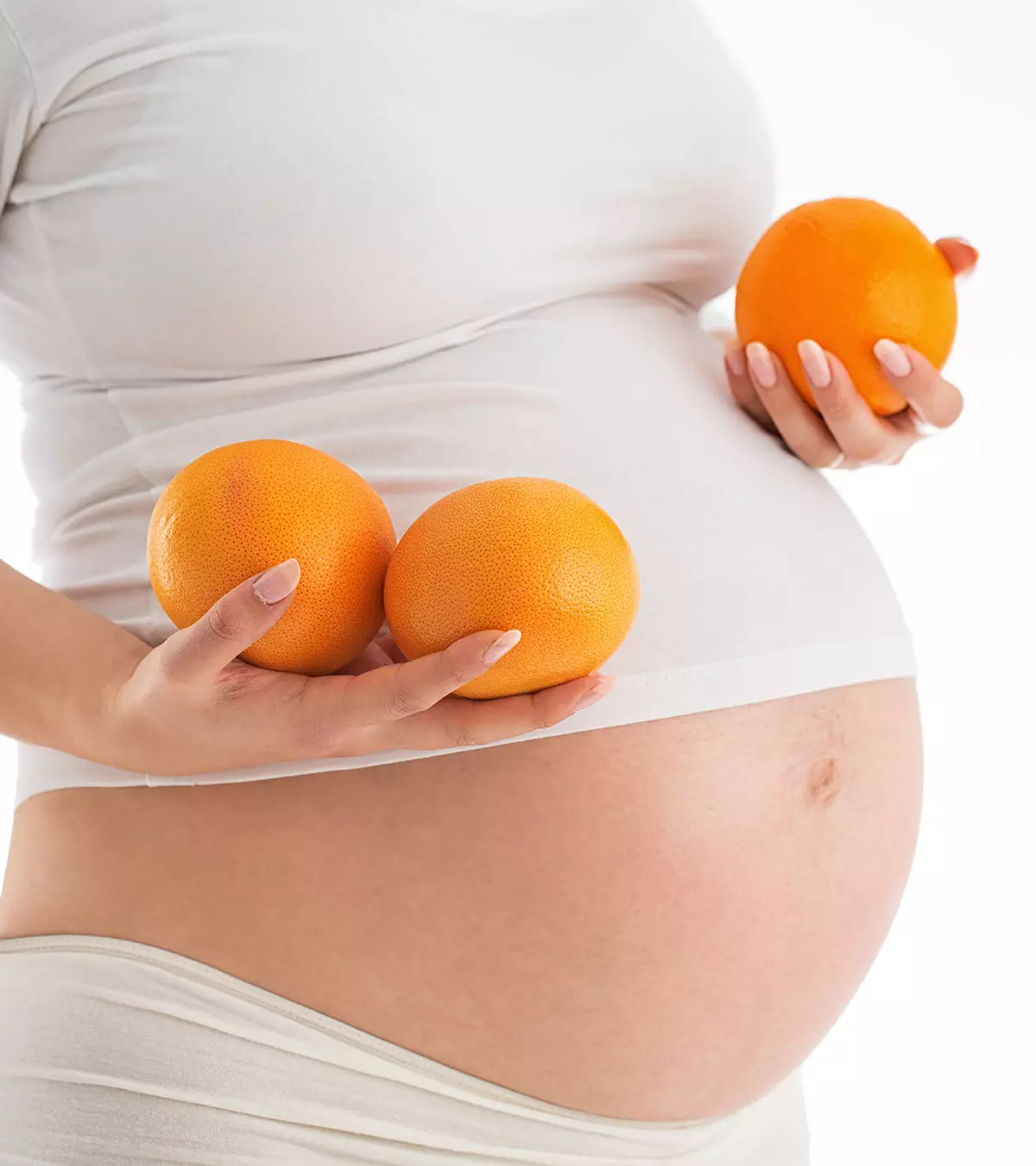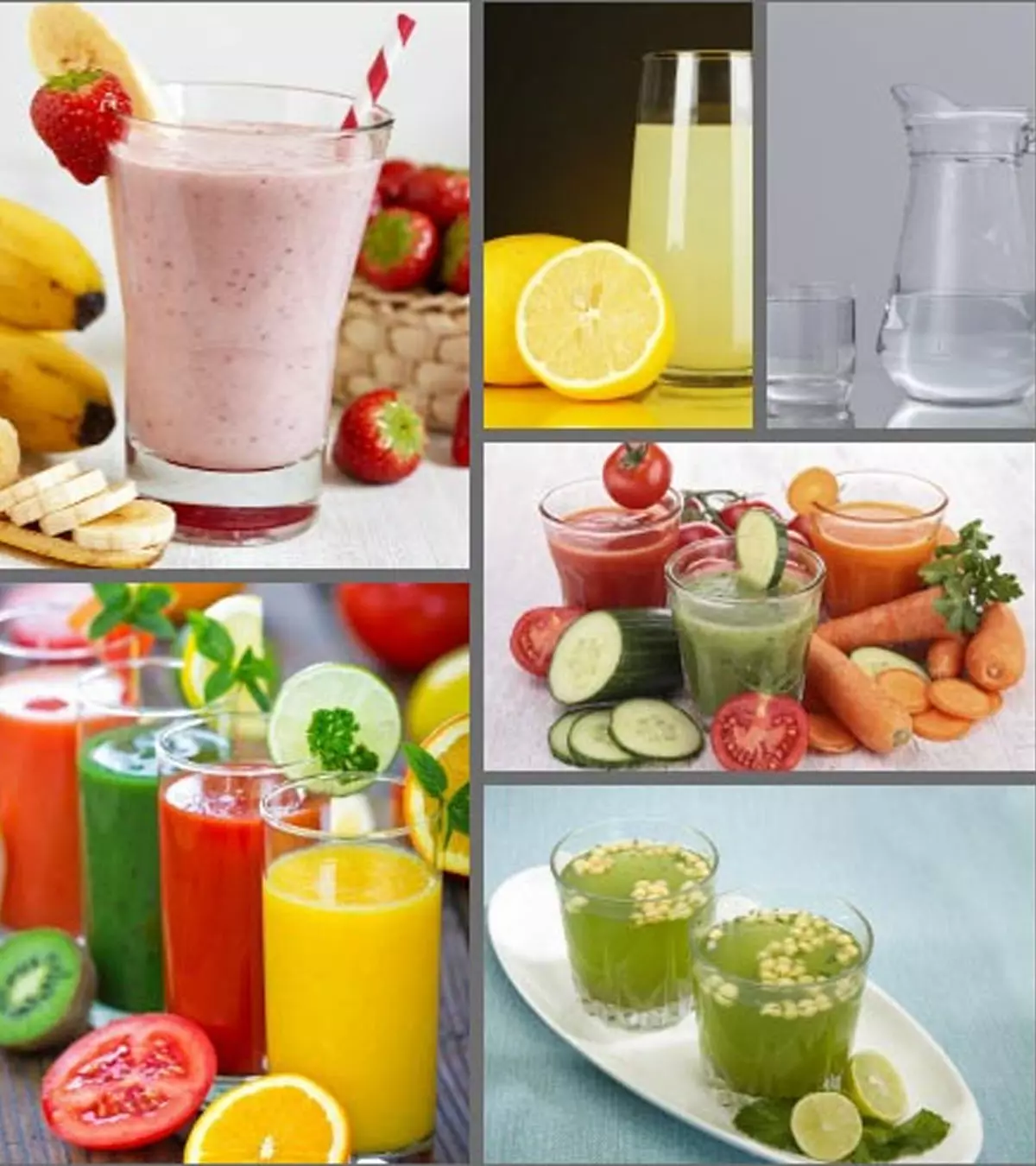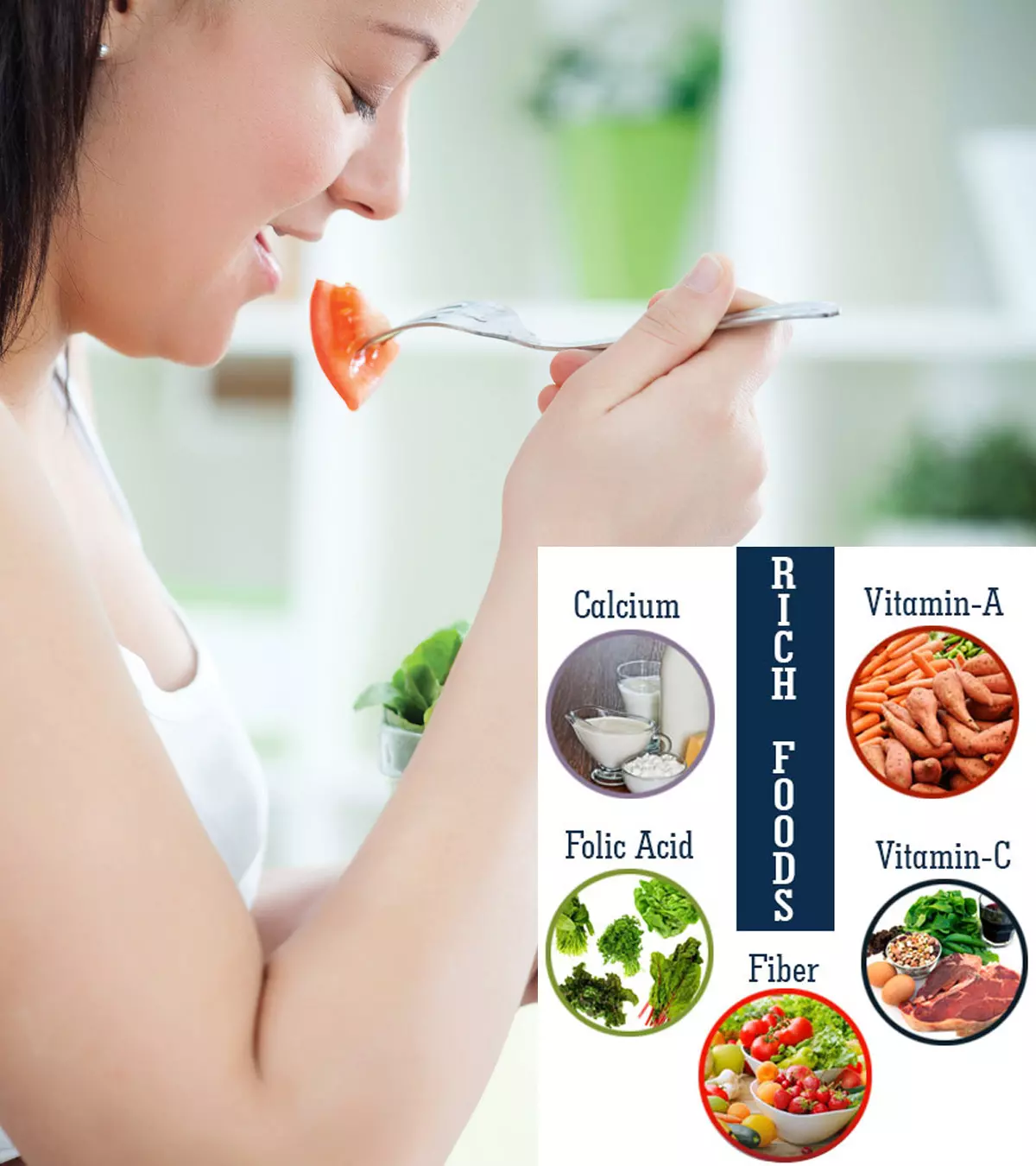
Image: ShutterStock
As soon as you learn about your pregnancy, you begin to plan your diet as per your increased appetite and nutritional requirements. Including protein-rich foods during pregnancy is a must. You must have at least 75 to 100gm of protein daily to aid in the healthy development of your baby. Protein is essential for the growth of fetal tissue, including the brain, and supports the development of the baby’s organs and muscles. It also aids in the growth of maternal tissues, such as the breasts and uterus, and plays a key role in increasing blood supply to support both the mother and baby (1). A lack of sufficient protein during pregnancy may negatively impact fetal growth and cognitive development. Therefore, you must have a minimum of 60gm protein every day to ensure a healthy pregnancy journey. Keep reading to learn about the signs of protein deficiency while pregnant, protein-rich foods and supplements to take during pregnancy.

Key Pointers
- Protein is essential for pregnant women for optimal fetal development and growth of uterine and breast tissues.
- Pregnant women require 75 to 100g (with a minimum of 60g) of protein per day.
- Good sources of protein for pregnant women include dairy products, nuts and seeds, legumes, and oats.
- Adequate protein intake is particularly vital during the last trimester of pregnancy.
- Signs of protein deficiency in pregnant women may include weight loss, recurrent infections, fluid retention, tired muscles, and hair loss.
- It’s recommended that pregnant women speak with a nutritionist to maintain a balanced diet and get advice on protein supplement requirements during pregnancy.
Protein Rich Foods During Pregnancy
Let’s take a look at protein-rich foods for pregnancy.
- Dairy products are good source of protein. You need to make sure you are taking yoghurt, eggs, milk, cheese and paneer every day in your diet.
- Nuts and seeds too are good sources of protein. You can try Brazil nuts, pistachios, coconuts, hazelnuts and almonds to get your daily dose of protein. Seeds like sunflower, sesame and pumpkin are also healthy options.
- Plant-based proteins like chickpeas, split peas, lentils, soy products, quinoa, kidney and moong beans are some other options that you can try.
- Whole grains such as oats and brown rice are considered a good source of protein. You can also try cookies, muffins, and pancakes made of oats.
- A protein rich diet will keep your blood sugar level in check and offer the much required energy. Protein is known to be the building “block of life”. Since you are building another life, you need to make sure you are taking adequate care for her.
Autumn Bates, a mother and a clinical nutritionist shares her pregnancy diet and mentions the importance of proteins. Speaking about eggs she says, “It is a really good source of protein which during pregnancy is so important for baby’s development as well as for preventing pregnancy complications. After sharing about her daily sources of vitamin A, choline, electrolytes, and vitamins she adds, “The fifth thing that I eat is cottage cheese or if I am not having cottage cheese I have Greek yogurt, both of these are really high in protein. I will usually have either a cup of cottage cheese in my cottage cheese pancakes or I will have a cup of Greek yogurt (i).”
 Quick tip
Quick tipProtein Supplements During Pregnancy
Apart from trying the natural sources of protein, you can also look for the supplements that are available in the form of liquid. Here is how you can benefit from them:
- You will get the much needed nutrients that you highly need during pregnancy.
- It is a good way to overcome morning sickness and other digestive problems.
However, make sure you are taking nutritional supplements after consulting with your doctor. This way you will know about the right amounts you need.
Protein In Your Last Trimester
You must get your full quota of protein in your last trimester. Take a look below:
- This is the phase when the brain of your baby is developing fast.
- You must be careful about your intake of omega 3 fatty acids, DHA to reduce the chances of postpartum depression.
- Thoroughly cooked fish and seafood, poultry and lean meat are some of the best protein rich foods and important sources of essential omega-3 fatty acids during pregnancy that you can try now.
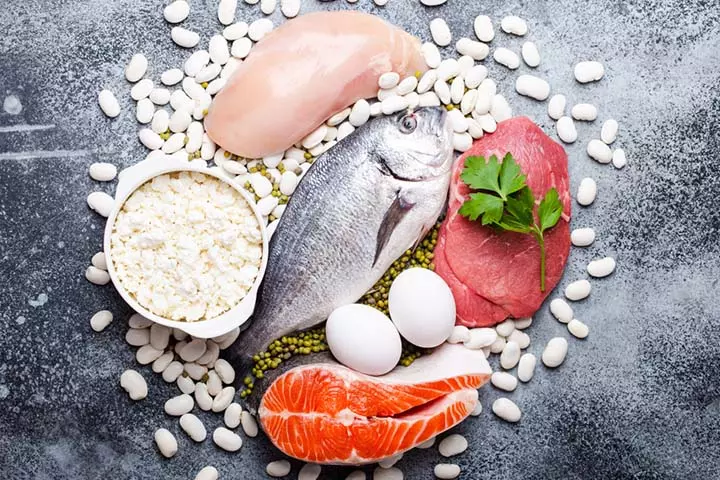
Image: Shutterstock
You need to be careful about your fish intake in pregnancy, as some of them are not safe for consumption. Fishes like tilefish, king mackerel, swordfish and shark are high in mercury levels and can affect brain development of your fetus. Make sure you are avoiding them. According to the recommendations of FDA you must consume 1 ounce of fish at this stage, but this has to be after consultation with your doctor.
If in doubt, you can consult a nutritionist to prepare a pregnancy diet chart for you.
Signs Of Protein Deficiency
There are some signs associated with low protein during pregnancy. You must be aware of them and take a second look at your diet if you experience them.
Here are some of the signs:
- Loss of weight
- Frequent infections
- Severe fluid retention
- Muscle fatigue
 Quick fact
Quick fact
Image: Shutterstock
Remember:
- Talk to your doctor if you experience any of these symptoms in any phase of your pregnancy.
- Do keep in mind the growing requirements of your baby and incorporate protein judiciously in your daily diet.
- If you are a vegetarian incorporate soy products, beans, nuts, lentils and dairy products to meet your daily requirements. Replacing normal milk with soymilk during pregnancy could be a good choice too.
Eating high protein foods during pregnancy is vital to maintaining your and your baby’s health. Meat, poultry, fish, dairy, seeds, vegetables such as legumes and lentils, and fruits such as nuts are various essential protein rich foods during pregnancy that can help you meet your daily protein needs. However, consult a certified nutritionist if you feel that your protein intake is insufficient or notice signs of protein deficiency. They can help you plan a well-balanced diet to meet your increased nutritional requirements in the third trimester. Besides, they can suggest a protein supplement based on your overall health and dietary preferences. Paying prompt attention to your nutritional needs is pivotal to having a smooth pregnancy.
Infographic: Protein Deficiency Symptoms And Protein-Rich Foods
Macronutrients such as protein are essential at all times, but they become even more so during pregnancy. This is because it supports the health of both the mother and the baby. Check out this infographic in which we discuss several protein deficiency indicators and suggest foods that are high in protein.
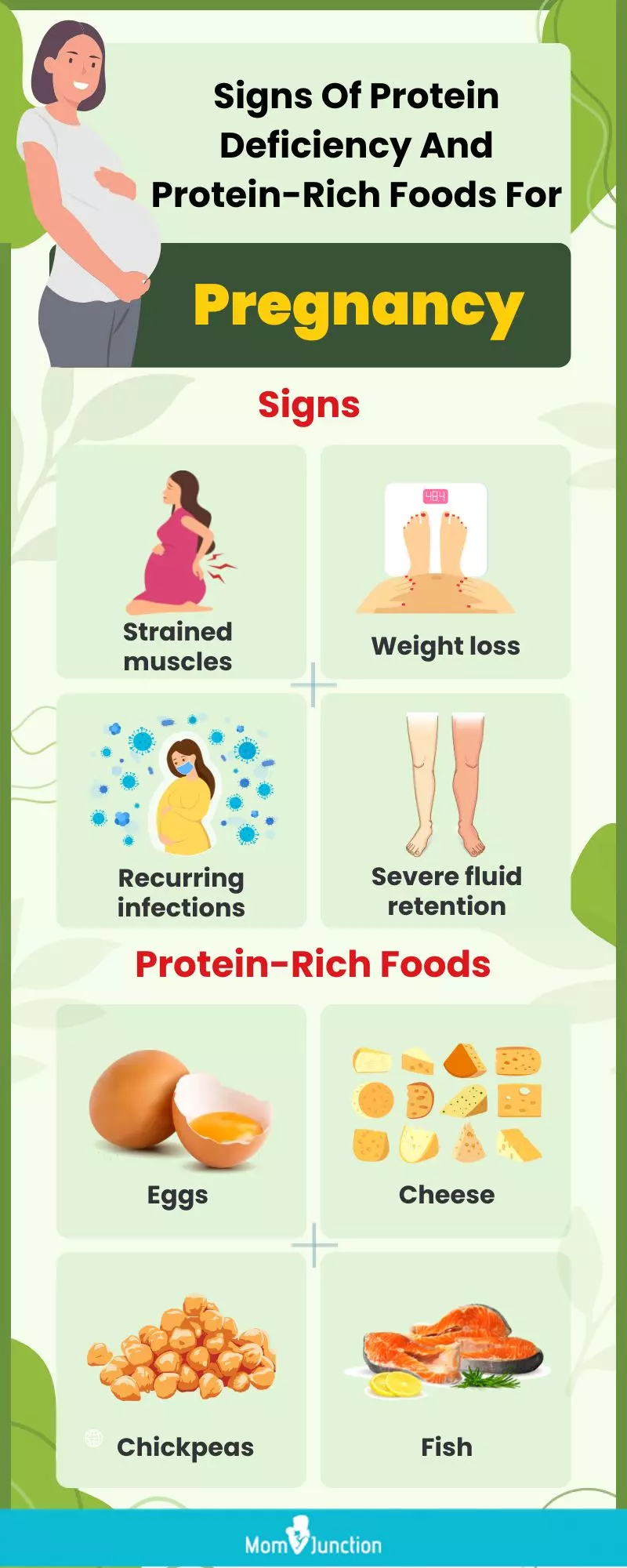
Illustration: Momjunction Design Team
Illustration: How To Manage Intake Of Protein Rich Foods During Pregnancy?

Image: Dall·E/MomJunction Design Team
Frequently Asked Questions
1. What kind of protein powders are safe while pregnant?
Balanced protein energy supplements and powders containing up to 20% energy as protein appear safe in pregnancy. Avoid protein supplements containing more than 20% energy as protein during pregnancy since it may lead to premature births and low birth weight in babies (2). Further, specially formulated high-protein supplements are usually not recommended during pregnancy (3).
2. Is it safe to drink protein shakes during pregnancy?
Most people do not require protein shakes, powders, or supplements since they get enough protein through their diet. However, you may drink protein shakes during pregnancy if your healthcare provider recommends filling the protein intake gap. Alternatively, you may add a variety of protein-rich foods to your pregnancy diet (4).
3. How much protein is essential for pregnant women?
A minimum of 60 grams of protein per day is recommended for pregnant women. It may account for 20 to 25 percent of your daily calorie intake (5).
4. Can protein intake increase fetal weight?
Fetal growth and development can improve if the mother’s protein intake is within the recommended limits. Thus, an increase in weight may be noticed when the protein intake is normal. However, a lack of proteins and taking more than needed can affect the optimal growth of the fetus (2).
5. How does protein deficiency affect pregnancy?
Protein deficiency or low maternal protein intake can increase the risk for intrauterine growth restriction, embryonic loss, and reduced postnatal growth due to deficiency of the required amino acids for cell function (6).
6. Does overeating protein cause preeclampsia?
Increased protein levels in urine might indicate preeclampsia. However, it does not mean that overeating protein can cause the condition (7).
7. Can I drink whey protein while pregnant?
Due to the lack of reliable data explaining its safety, experts recommend avoiding whey protein during pregnancy to prevent any potential side effects (8).
Are you pregnant and wondering if protein supplements are safe to take? Find out in this video! Learn about the potential risks and benefits of taking protein supplements while pregnant.
Personal Experience: Source
MomJunction articles include first-hand experiences to provide you with better insights through real-life narratives. Here are the sources of personal accounts referenced in this article.
i. 10 things I’m eating everyday while pregnant as a nutritionist;https://www.youtube.com/watch?v=K48qpvTzmBs
References
- Pregnancy Nutrition.
https://americanpregnancy.org/healthy-pregnancy/pregnancy-health-wellness/pregnancy-nutrition/#:~:text=Experts%20recommend%2075%20to%20100,of%20a%20deck%20of%20cards - Selma C. Liberato, et al.; Effects of protein energy supplementation during pregnancy on fetal growth: a review of the literature focusing on contextual factors; National Library Of Medicine (2013)
https://www.ncbi.nlm.nih.gov/pmc/articles/PMC3827488/ - Proteins And Amino Acids; National Library Of Medicine
https://www.ncbi.nlm.nih.gov/books/NBK235221/ - Protein; BetterHealth Channel
https://www.ncbi.nlm.nih.gov/books/NBK235221/ - Eating Right Before And During Pregnancy; UCSF Health
https://www.ucsfhealth.org/education/eating-right-before-and-during-pregnancy - Cassandra M Herring, et al.; Impacts of maternal dietary protein intake on fetal survival, growth, and development; National Library Of Medicine (2018)
https://www.ncbi.nlm.nih.gov/pmc/articles/PMC5882021/#:~:text=Low%20maternal%20dietary%20protein%20intake - Preeclampsia Tests.
https://www.preeclampsia.org/preeclampsia-tests - Whey Protein
https://medlineplus.gov/druginfo/natural/833.html - Rushton, D. H.; (2002); Nutritional Factors and Hair Loss.” Clinical and Experimental Dermatology.
https://pubmed.ncbi.nlm.nih.gov/12190640/
Community Experiences
Join the conversation and become a part of our nurturing community! Share your stories, experiences, and insights to connect with fellow parents.
Read full bio of Reda Elmardi
Read full bio of Rebecca Malachi
Read full bio of Swati Patwal
Read full bio of Dr. Joyani Das






